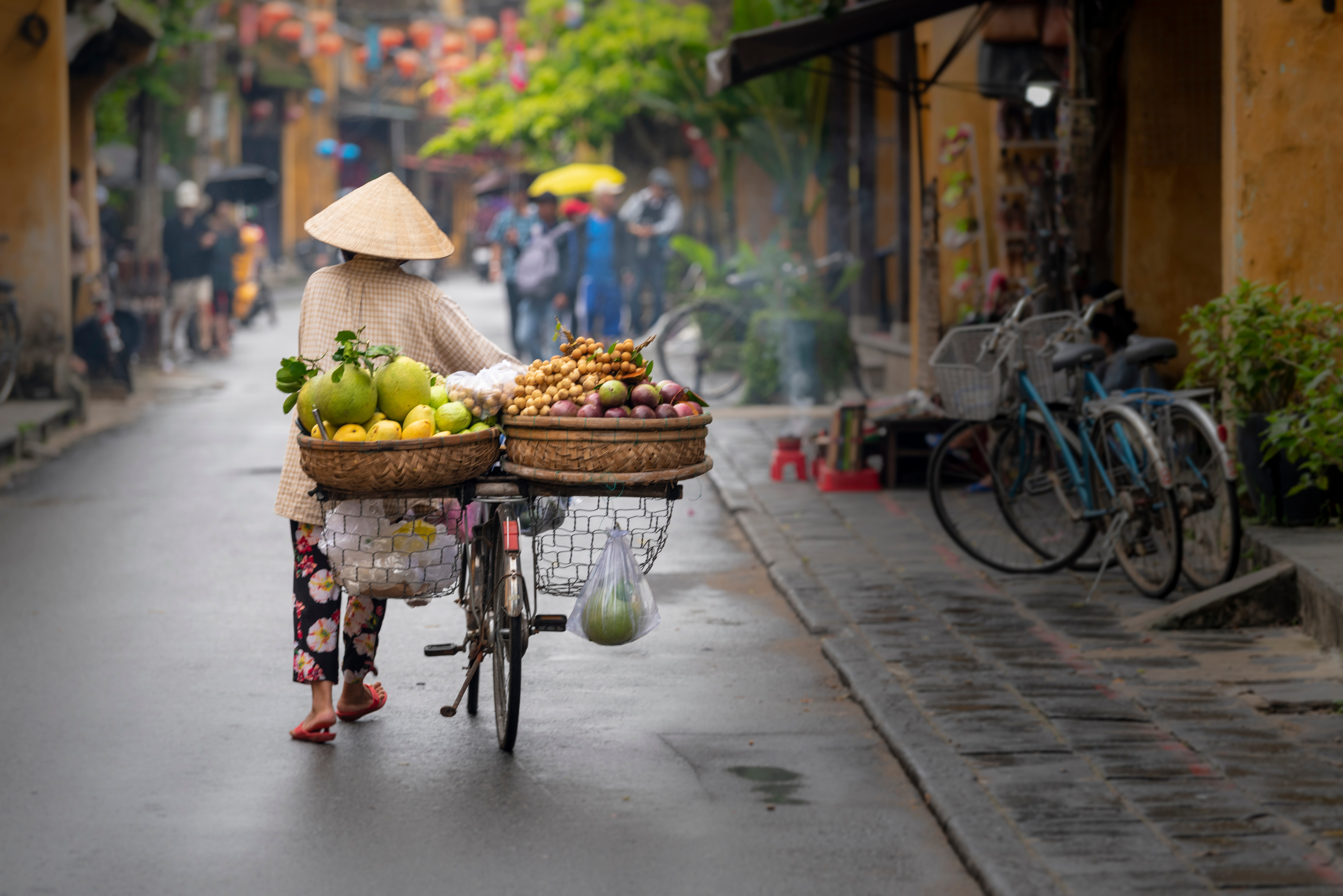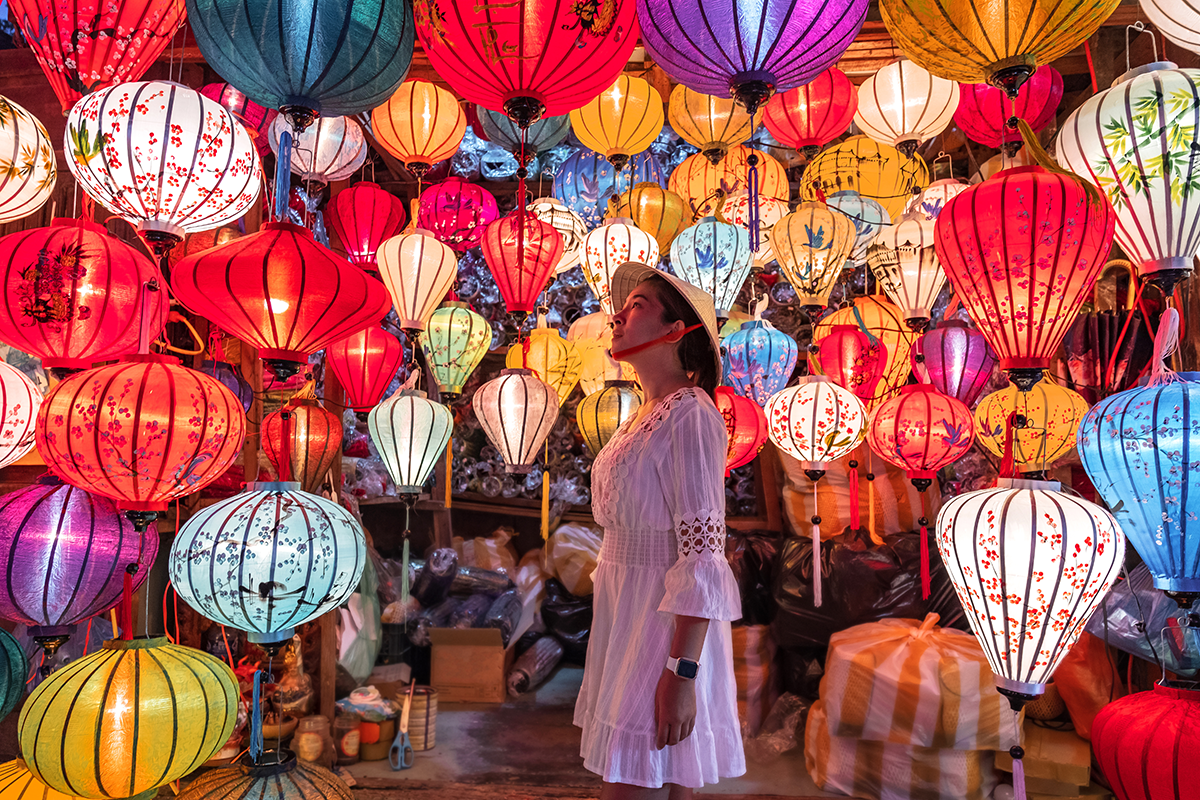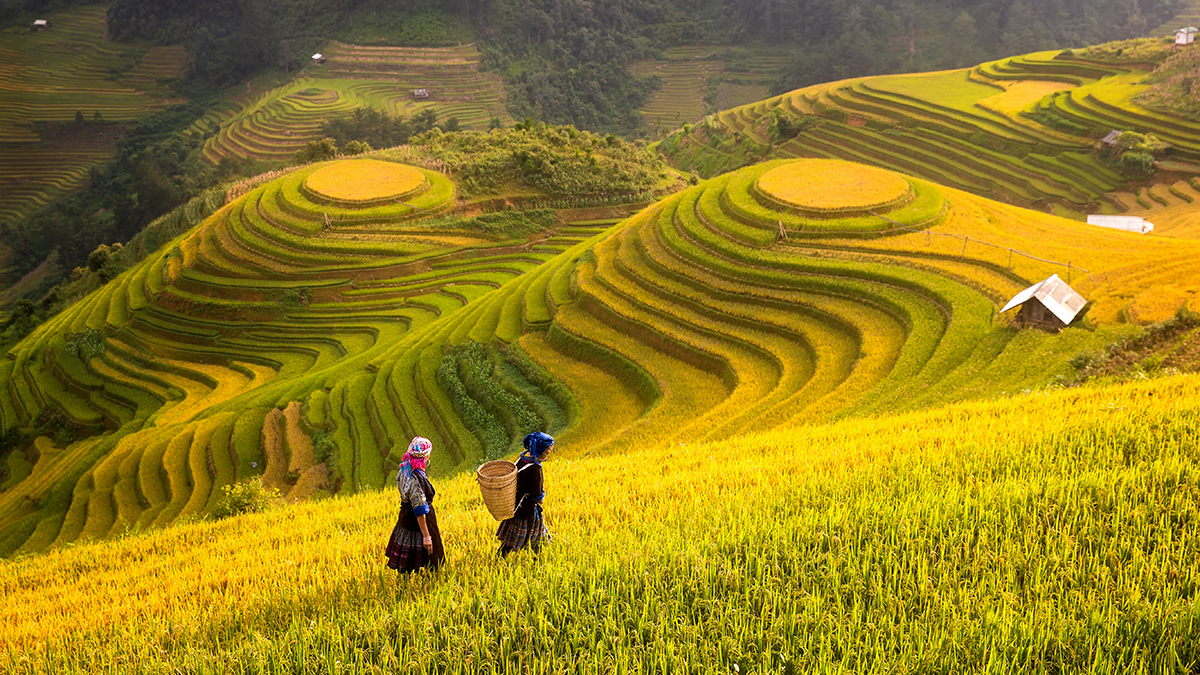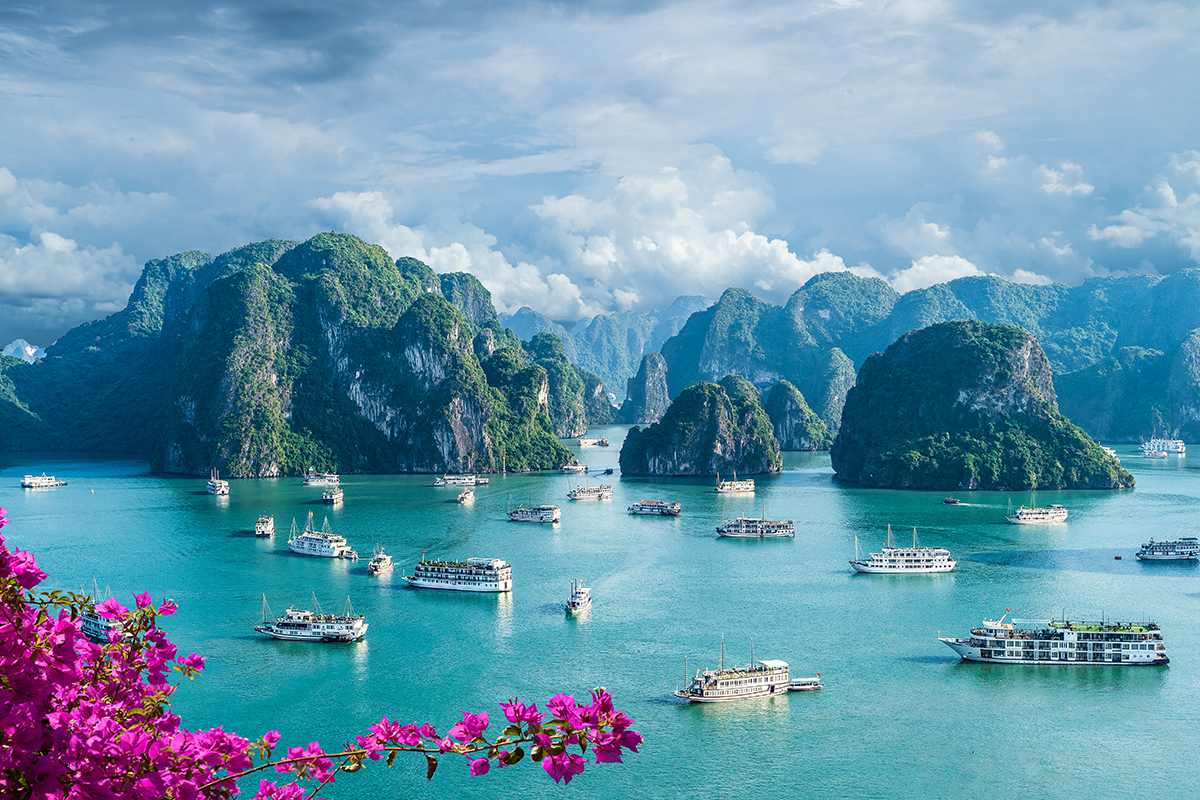
IS IT SAFE TO TRAVEL TO VIETNAM IN 2025?
Vietnam is an intriguing Asian destination for many American travelers. However, many of those same travelers wonder if it’s safe to travel to Vietnam.
The answer is yes. As long as you don’t try to ride a scooter through its major cities, Vietnam is a safe, fascinating destination with much to see, try, and taste.
Vietnam Safety by the Numbers
The cities
Vietnam’s safety numbers and ratings are interesting. They show its cities are safe, but only in certain ways.
The country’s two major cities are Hanoi in the north and Ho Chi Minh City (the City Formerly Known as Saigon) in the south.
According to GeoSure Global, which measures and rates cities on multiple dimensions on a neighborhood-by-neighborhood basis, both cities are very safe when it comes to personal safety. In addition, both cities get good marks for healthcare and women’s safety.
On the other hand, both cities rank extremely low for basic freedoms, because of the semi-repressive nature of Vietnam’s national government and security forces.
The cities also rank poorly for theft, nighttime safety, and LGBTQ+ safety.
According to the crowdsourced safety ratings from Numbeo, Ho Chi Minh City is the 204th-safest city out of 311 world cities, two spots ahead of Dallas.
Hanoi fares better, checking in at 98th, two spots ahead of Moscow.
Finally, Ho Chi Minh City came in 45th out of 60 cities in The Economist’s 2021 World’s Safest Cities rankings. It received its best marks for health security and its poorest marks for information security.
The country
As for the countrywide rankings, Vietnam checks in 41st out of 163 countries in the annual Global Peace Index, with the only negatives being the number of security forces in the country.
Global Finance’s country-safety rankings, which echo those of the World Economic Forum, placed Vietnam 49th out of 134 countries.
Numbeo has it 57th out of 146 countries, one spot ahead of Palestine.
Finally, the Safest Countries Ratings from Berkshire Hathaway Travel Protection had Vietnam ranked 30th out of 42 countries in 2024, moving up four spots from the previous year.
Mature and LGBTQ+ travelers gave Vietnam highest marks for safety, while women and Gen Z travelers gave the country its lowest marks.
The State Department
The State Department gives Vietnam its top safety rating – a level-1, or “exercise normal precautions.” However, it’s nonetheless very specific in discussing the safety risks that do exist in Vietnam.
For instance, it advises against taking balloons of nitrous oxide from people in nightclubs. That’s good information but weirdly specific, from the balloon to the name of the drug to the venue.
It also advises that people not accept chewing gum or snacks from strangers on the street, as they may be laced with drugs.
As for petty crime, it advises tourists to be extra-careful during the celebrations for Tet (the Lunar New Year) and Christmas.
And finally, it recommends that tourists not rent motor scooters specifically, as Vietnamese drivers ignore traffic laws.
Otherwise, travel.state.gov is good with Americans visiting anywhere in the country, as long as they take some of the precautions listed below.
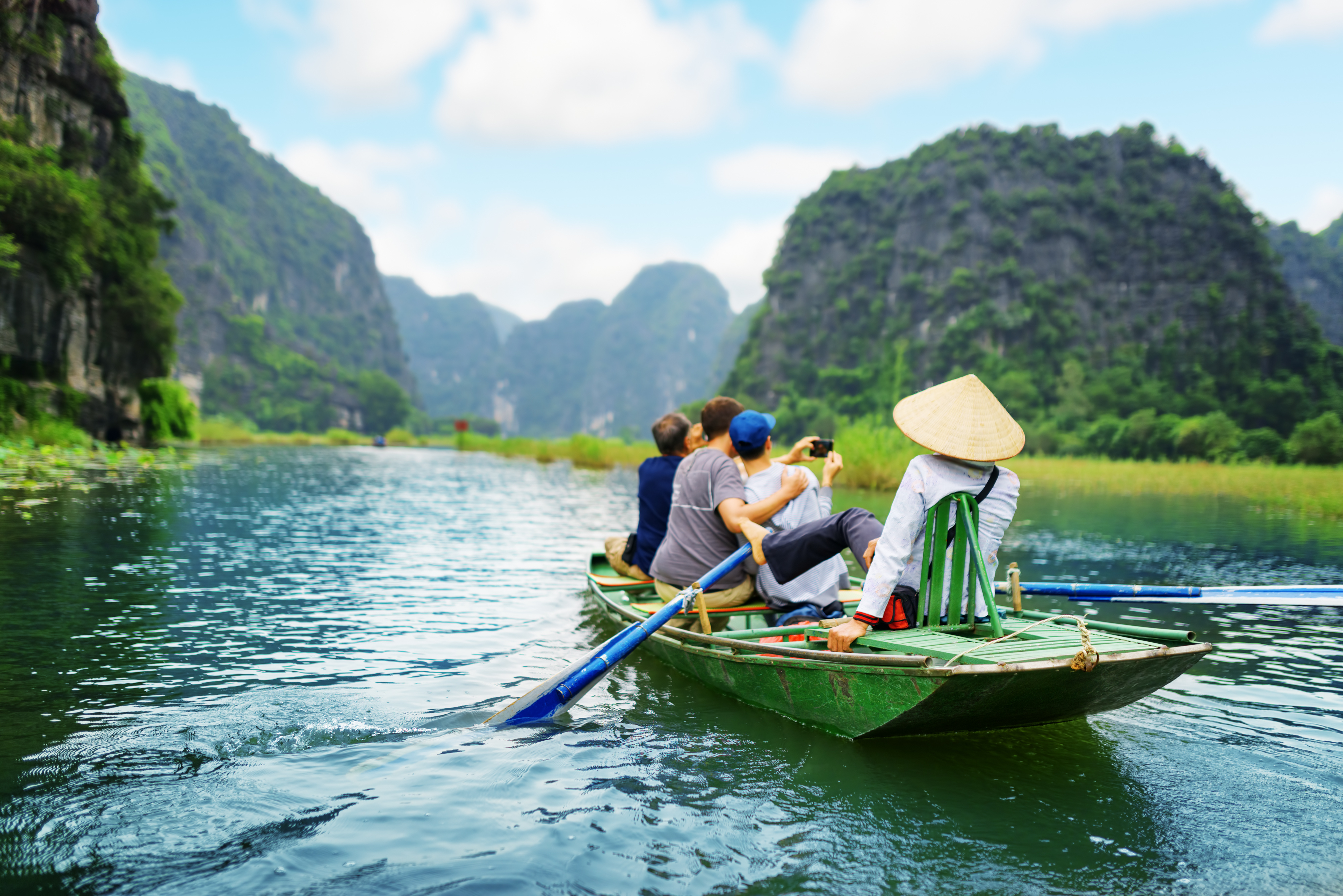
Health and Safety in Vietnam
Crime
Petty theft is the most common type of crime for tourists in Vietnam. Thieves often operate on motor scooters in the most crowded parts of the largest cities and target tourists’ cellphones, purses, cameras, and backpacks.
The State Department recommends you hold on to your phones and purses tightly. An additional level of security would be to invest in a shoulder bag or backpack with cut-proof straps.
If your bag or phone is stolen, promptly notify local police and the U.S. Embassy in Hanoi or the U.S. Consulate General in Ho Chi Minh City.
It’s also a good idea to exercise the same cautions in Vietnam’s major cities as you would in any other big city:
- Don’t walk alone at night
- Stick to well-lighted areas
- Tell hotel staff and trusted friends where you’re going
- Be alcohol- and drug-smart
Finally, note that if you’re arrested in Vietnam it may be weeks before U.S. authorities or your family is notified.
Health
The Vietnamese healthcare system is rudimentary. Vietnamese doctors often don’t speak English and demand payment upfront before treating Americans. For more severe illnesses or injuries you may need to be airlifted to Thailand or Japan for treatment.
In addition, much of Vietnam is rural and/or jungle. If you’re injured or get sick in the countryside, note that healthcare resources are sparse and medicines may be in short supply.
If you’re severely unwell, you’ll likely need to be airlifted. For that reason, it’s a good idea to carry travel insurance with robust coverage for emergency medical evacuation.
Wherever you travel in Vietnam, make sure you have an ample supply of your prescription meds. Carry scripts with you and clear any medications with Vietnamese authorities before bringing them into the country.
Health threats
Mosquito-borne diseases – namely malaria, dengue fever, and Zika – are common in Vietnam. Wear mosquito repellent with a high concentration of deet, and reapply frequently in humid weather.
Poisonous snakes, spiders, and centipedes are common in the countryside. Bats can spread disease, and saltwater crocodiles may make you think twice about swimming.
However, for a tropical country Vietnam comes out light on the creepy-crawly scale.
Traffic and Transportation
Driving and scooters
It’s important to remember the State Department’s earlier statement about Vietnamese drivers. The State Department often says that drivers in a given country don’t always follow traffic laws; in Vietnam, according to the State Department, drivers never follow the laws.
You need a special scooter license to drive a scooter and your American driver’s license isn’t sufficient in Vietnam. You need a Vietnamese driver’s license obtained through the Provincial Public Transportation Service of the Vietnamese Department of Communications and Transport.
Given that, renting a scooter seems like lunacy, but many American travelers do. If you insist on scootering in Vietnam, take the following precautions:
- Always wear a helmet
- Always yield to larger vehicles
- Don’t drive “Vietnamese-style” – against traffic and on the sidewalks
Public transportation
Vietnamese public transport is generally overcrowded and dangerous.
Cabs are fairly plentiful and are as safe as any motor vehicle in Vietnam. However, motorcycle cabs – xe om – are often unlicensed and almost always unsafe.
Scams involving rickshaws and livery services can happen. If you’re at the airport and see what looks to be a limousine driver holding a placard with your name, ask for their name, phone number, and license-plate number.
In larger cities, ask hotel staff to recommend safe cab services.
Local Laws and Customs
Vietnam is a conservative country. Understanding and respecting local laws and customs is vital.
Dress modestly, especially when visiting temples and religious sites. Avoid public displays of affection and be respectful when taking photographs, especially of people.
(Another photo caveat: Avoid taking photos of anything that might be deemed military or related to security.)
Weather and Natural Disasters
Vietnam’s monsoon season runs from June to November. During that time, depending on which part of the country you’re visiting, you may experience typhoons, mudslides and heavy flooding.
Watch the weather, bookmark NOAA’s monsoon page, and pay attention to government warnings and evacuation orders.
Air pollution is a major issue, especially in Hanoi. If you have respiratory or pulmonary issues, think twice about extended stays in Hanoi or Ho Chi Minh City. Monitor AirNow for the latest air-quality information on Vietnamese cities.
Cuisine and Food Safety
Vietnamese cuisine is delightful, but food safety can be a concern. Eat at reputable establishments and avoid raw or undercooked food.
Street food can be safe, but Local Vietnam recommends you choose vendors with high turnover where you can see the food being cooked.
Water quality is also circumspect. Local Vietnam also recommends you use bottled water for drinking and washing fruits or vegetables.
Travel Insurance
Especially because of the nature of the Vietnamese healthcare system, the State Department recommends travel insurance for all Americans visiting Vietnam.
A comprehensive travel insurance policy from Berkshire Hathaway Travel Protection can provide peace of mind – not just for health emergencies, but also trip cancellation and interruption, and lost baggage.
BHTP offers a variety of plans and an easy, streamlined quote process.
By any yardstick, Vietnam is a great global success story. It’s also a fascinating destination for Americans for many reasons.
And all it takes is a few precautions to have an amazing Vietnamese vacation.
Questions About Travel Insurance?
Check out our online guide, "What Is Travel Insurance All About?" We've provided in-depth answers to all your travel insurance questions, starting with the basics.
